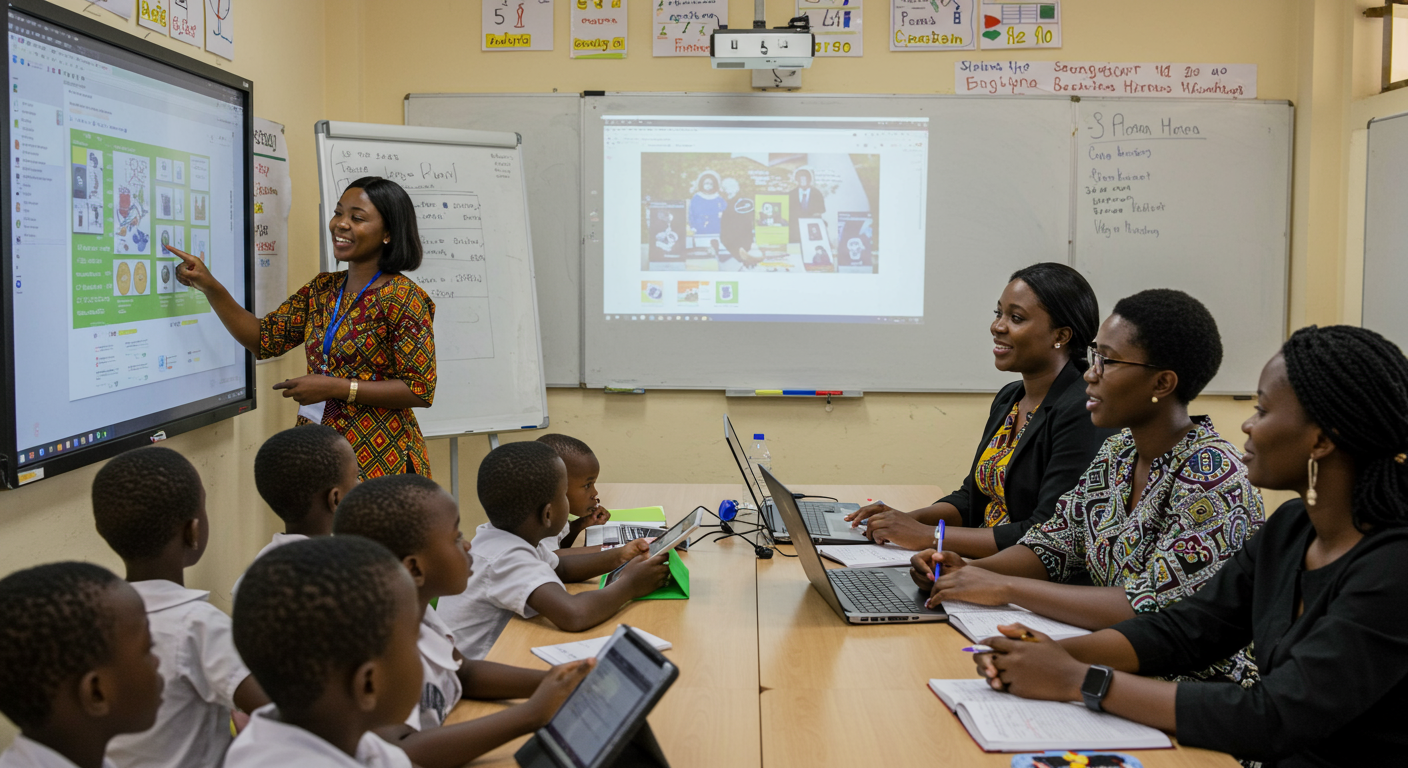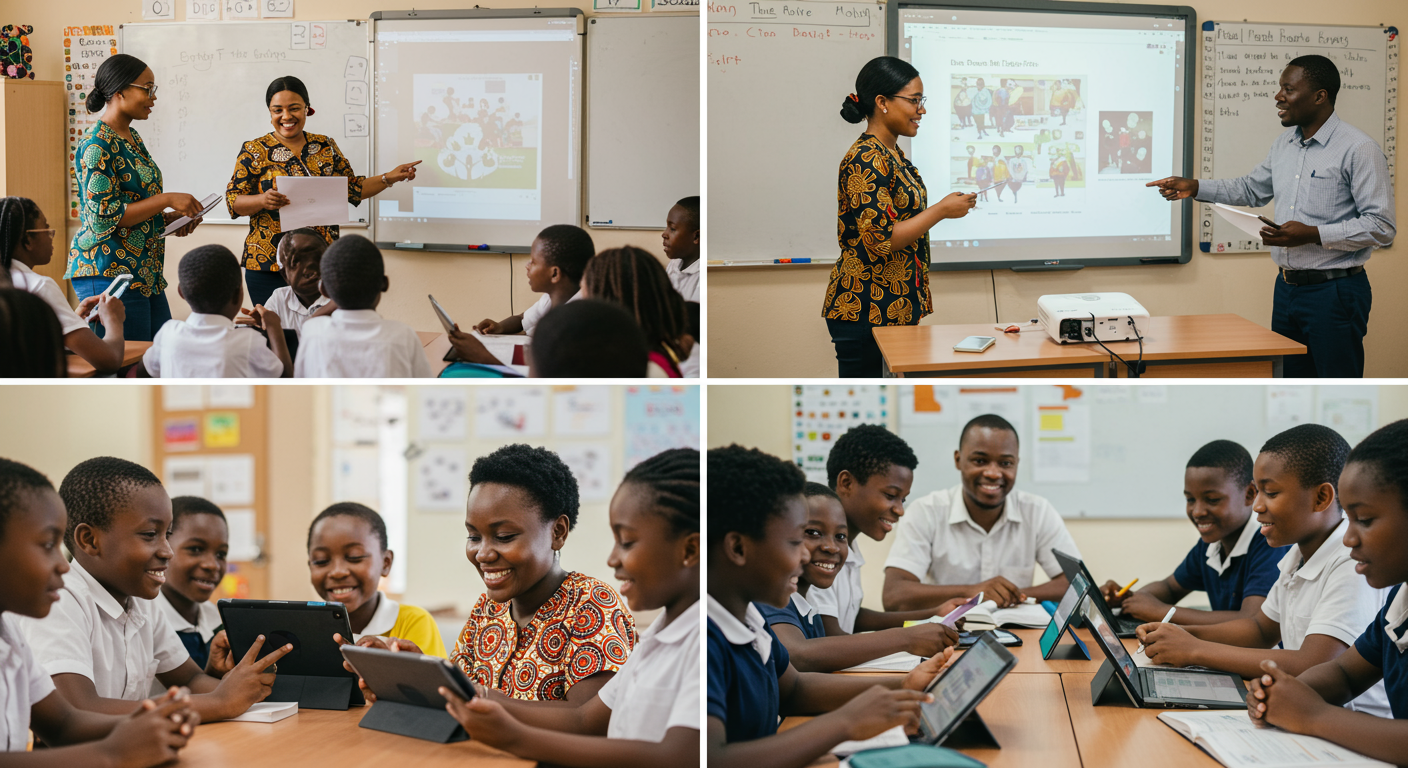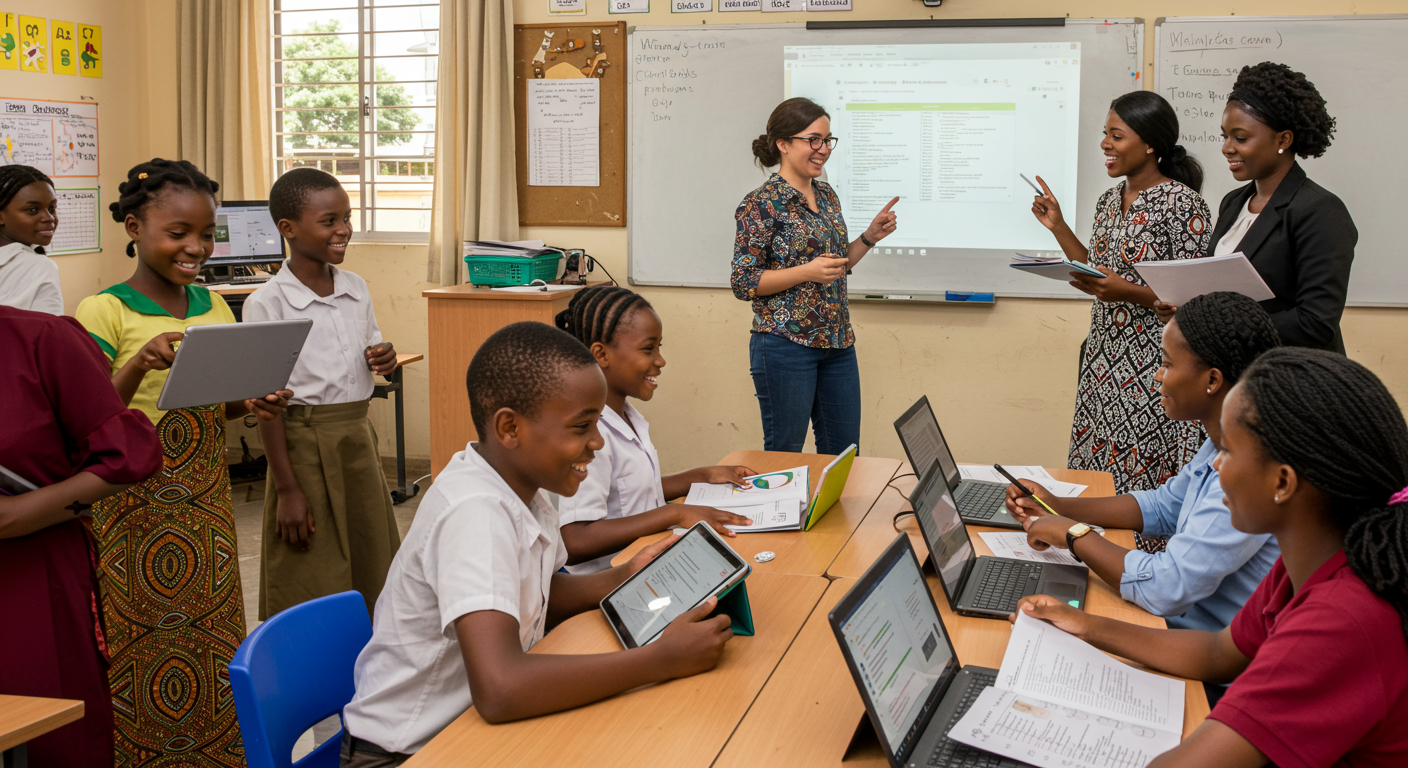Revolutionizing Education in Nigeria: The KOICA-UBEC Smart Education Project
Revolutionizing Education in Nigeria: The KOICA-UBEC Smart Education Project
Ever wondered how a single initiative could reshape the future of millions? In Nigeria, a remarkable partnership is doing just that, bringing the future of learning to every classroom.
You know, when I first started blogging about education, the idea of "smart classrooms" in some parts of the world felt like a distant dream. But today, I’m genuinely thrilled to share some truly exciting news about a project that's turning those dreams into reality. South Korea’s KOICA and Nigeria’s Universal Basic Education Commission (UBEC) have just completed a significant phase of their Smart Education Project in Nigeria. It's not just about technology; it's about empowering teachers, engaging students, and crafting learning experiences that genuinely resonate. Let’s dive into what makes this initiative so groundbreaking, shall we?
Table of Contents
 Description : "A vibrant illustration of a modern classroom in Nigeria, with young students (diverse ages, 7-12) engaged with digital tablets, while a cheerful female teacher (30s) stands at a smart board. The room is bright and filled with natural light, showing a blend of traditional African patterns and modern tech. The style is warm, inviting, and futuristic."
Description : "A vibrant illustration of a modern classroom in Nigeria, with young students (diverse ages, 7-12) engaged with digital tablets, while a cheerful female teacher (30s) stands at a smart board. The room is bright and filled with natural light, showing a blend of traditional African patterns and modern tech. The style is warm, inviting, and futuristic."
The Dawn of a New Era: What is Smart Education?
When we talk about Smart Education, we’re not just talking about putting a computer in a classroom. Oh no, it’s so much more than that. It’s about creating an integrated learning environment where technology, innovative teaching methods, and relevant content converge to make education more accessible, engaging, and personalized. Think about it: traditional classrooms, for all their foundational importance, can sometimes struggle to keep pace with a rapidly changing world. Smart education aims to bridge that gap, preparing students for the challenges and opportunities of tomorrow. It’s a holistic approach, encompassing everything from digital infrastructure to teacher capacity building and curriculum development. And, frankly, it’s what every student deserves in this digital age.
 Description : "A detailed photograph showing a close-up of a diverse group of Nigerian educators (mixed genders, 20s-50s) attentively participating in a teacher training session. They are gathered around a table with laptops and workbooks, engaged in discussion. The background shows charts and a projector screen displaying educational software. The atmosphere is serious yet hopeful."
Description : "A detailed photograph showing a close-up of a diverse group of Nigerian educators (mixed genders, 20s-50s) attentively participating in a teacher training session. They are gathered around a table with laptops and workbooks, engaged in discussion. The background shows charts and a projector screen displaying educational software. The atmosphere is serious yet hopeful."
KOICA & UBEC: A Powerful Partnership for Nigerian Schools
The partnership between the Korea International Cooperation Agency (KOICA) and Nigeria’s Universal Basic Education Commission (UBEC) is, simply put, a match made in educational heaven. KOICA, South Korea’s primary development cooperation agency, brings a wealth of experience in leveraging technology for national development. UBEC, on the other hand, is Nigeria's key body for basic education, deeply understanding the local needs and challenges on the ground. Together, they’ve embarked on this ambitious Smart Education Project in Nigeria, aiming to uplift learning standards across the nation. This isn't just a simple aid project; it’s a strategic collaboration to build sustainable educational infrastructure and empower the Nigerian youth with future-ready skills. It’s about laying a foundation, not just building a house, if you know what I mean.
This first phase, as I understand it, has focused on a few crucial areas. Let's take a look at the key components they've introduced:
| Project Component | Key Features | Expected Impact |
|---|---|---|
| Digital Classrooms | Equipping schools with computers, smart boards, internet access. | Enhanced learning environment, access to digital resources. |
| Teacher Training | Pedagogical skills for using EdTech, content development. | Improved teaching quality, confident educators. |
| Local Learning Content | Developing contextually relevant digital educational materials. | Culturally relevant learning, better student engagement. |
 Description : "A group of Nigerian students (boys and girls, around 10-14 years old) are seen collaborating on a group project in a digital classroom, using tablets and a shared interactive screen. They are smiling and actively discussing, with a supportive male teacher (40s) in the background guiding them. The setting is a brightly lit, modern classroom with vibrant colors, illustrating a collaborative learning atmosphere."
Description : "A group of Nigerian students (boys and girls, around 10-14 years old) are seen collaborating on a group project in a digital classroom, using tablets and a shared interactive screen. They are smiling and actively discussing, with a supportive male teacher (40s) in the background guiding them. The setting is a brightly lit, modern classroom with vibrant colors, illustrating a collaborative learning atmosphere."
Digital Classrooms & Teacher Empowerment: The Core Pillars
Honestly, you can’t have smart education without digital classrooms, right? This project is all about equipping Nigerian schools with the necessary hardware and software – from computers to smart boards and, crucially, stable internet access. But here’s the thing: fancy gadgets are useless without skilled hands to wield them. That’s why teacher training is perhaps the most critical component. It’s not just about teaching them how to turn on a computer; it's about transforming their pedagogical approach. They're learning how to integrate technology seamlessly into lessons, how to foster interactive learning, and even how to develop their own digital content. I really believe that empowering teachers is like lighting a thousand lamps – their impact multiplies, reaching every student they teach. It's truly inspiring.
Here are some key aspects of this teacher empowerment initiative:
- EdTech Integration: Teachers learn to use smart boards, tablets, and educational software for dynamic lessons.
- Interactive Pedagogy: Shifting from rote learning to inquiry-based and project-based approaches.
- Digital Content Creation: Equipping educators with skills to create their own localized learning materials.
- Continuous Professional Development: Ensuring ongoing support and training to adapt to new technologies and methodologies.
 Description : "An evocative, artistic rendering of local learning content being created. A young Nigerian woman (20s) with traditional attire is sitting at a laptop, surrounded by open books and local artifacts, while a floating digital screen above her shows colorful, interactive educational content featuring Nigerian culture and geography. The style is a blend of realism and magical realism, highlighting creativity and cultural relevance."
Description : "An evocative, artistic rendering of local learning content being created. A young Nigerian woman (20s) with traditional attire is sitting at a laptop, surrounded by open books and local artifacts, while a floating digital screen above her shows colorful, interactive educational content featuring Nigerian culture and geography. The style is a blend of realism and magical realism, highlighting creativity and cultural relevance."
Crafting Local Content: Education That Resonates
What I find particularly brilliant about this initiative is its focus on locally made learning content. I mean, generic educational material can only go so far, right? For students to truly engage, the content needs to be relevant to their lives, their culture, and their environment. This project actively supports the development of digital learning materials that are tailored to the Nigerian context. This ensures that lessons resonate deeply, making learning more meaningful and sticky. Imagine learning mathematics through local proverbs or understanding science with examples drawn from everyday Nigerian life. It makes a huge difference, not just in comprehension but also in fostering a sense of pride and identity among students. It’s like, a real game-changer.
📝 Note: The development of local content is a critical aspect of sustainable education. It ensures that students see themselves and their experiences reflected in their learning materials, enhancing cultural relevance and engagement.
Impact and Future Vision: What's Next for Nigerian Education?
The completion of this first phase is a massive milestone for Nigerian education. The initial results are promising, with schools and teachers embracing these new tools and methodologies. But, as with any ambitious project, the real impact unfolds over time. The long-term vision, I believe, is nothing short of transforming the entire basic education landscape in Nigeria. This includes scaling up the project to more schools, continually refining the digital content, and fostering a culture of innovation among educators. Think about it: a nation where every child, regardless of their background, has access to quality, digitally-enhanced education. That’s a future worth investing in, wouldn’t you agree? It truly inspires hope, and if you ask me, that’s priceless.
Your Questions Answered: FAQs on Smart Education in Nigeria
The Smart Education Project is a collaborative initiative between South Korea's KOICA and Nigeria's UBEC to enhance basic education in Nigeria. It focuses on integrating digital classrooms, providing advanced teacher training, and developing localized learning content to create a more engaging and effective learning environment.
Local learning content is crucial because it ensures that educational materials are culturally relevant and relatable to Nigerian students. By incorporating local contexts, traditions, and examples, the project aims to make learning more meaningful, increase student engagement, and foster a stronger sense of identity among the learners. It moves beyond generic content to truly connect with the students' lived experiences.
The project empowers teachers through comprehensive training programs that go beyond basic computer literacy. Educators learn to effectively integrate educational technology into their lessons, adopt interactive teaching methodologies, and even develop their own digital content. This holistic approach builds their confidence and skills, transforming them into facilitators of modern, engaging learning experiences.
While the first phase is complete, the long-term goals are ambitious. They include expanding the Smart Education Project to reach more schools across Nigeria, continuously updating and diversifying the digital learning content, and fostering a sustainable ecosystem for educational innovation. The ultimate aim is to ensure that every Nigerian child has access to high-quality, technologically-advanced basic education, preparing them for future success.
Ready to explore more about global education initiatives? Click here for the official update from Korea.net!
Comments
Post a Comment